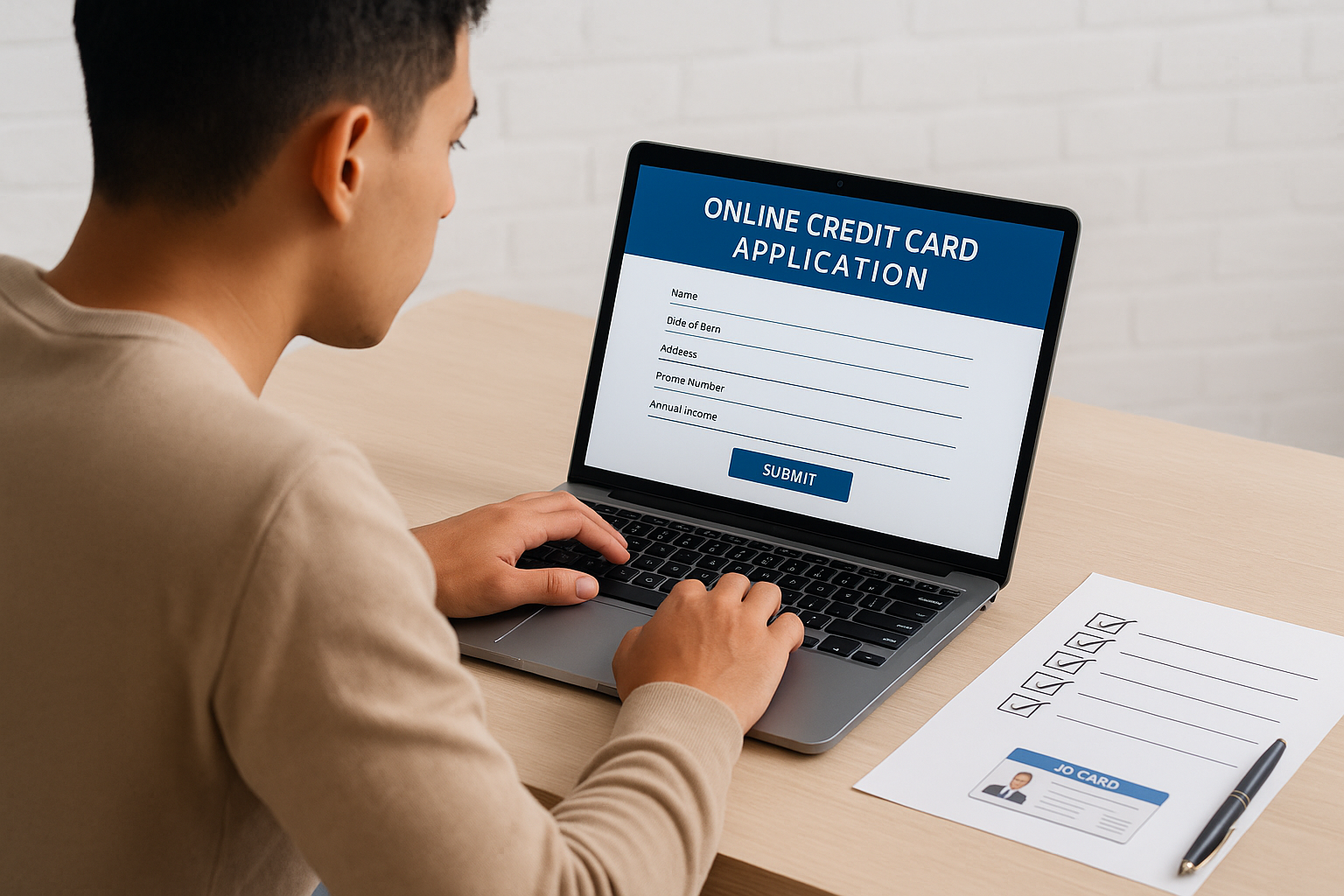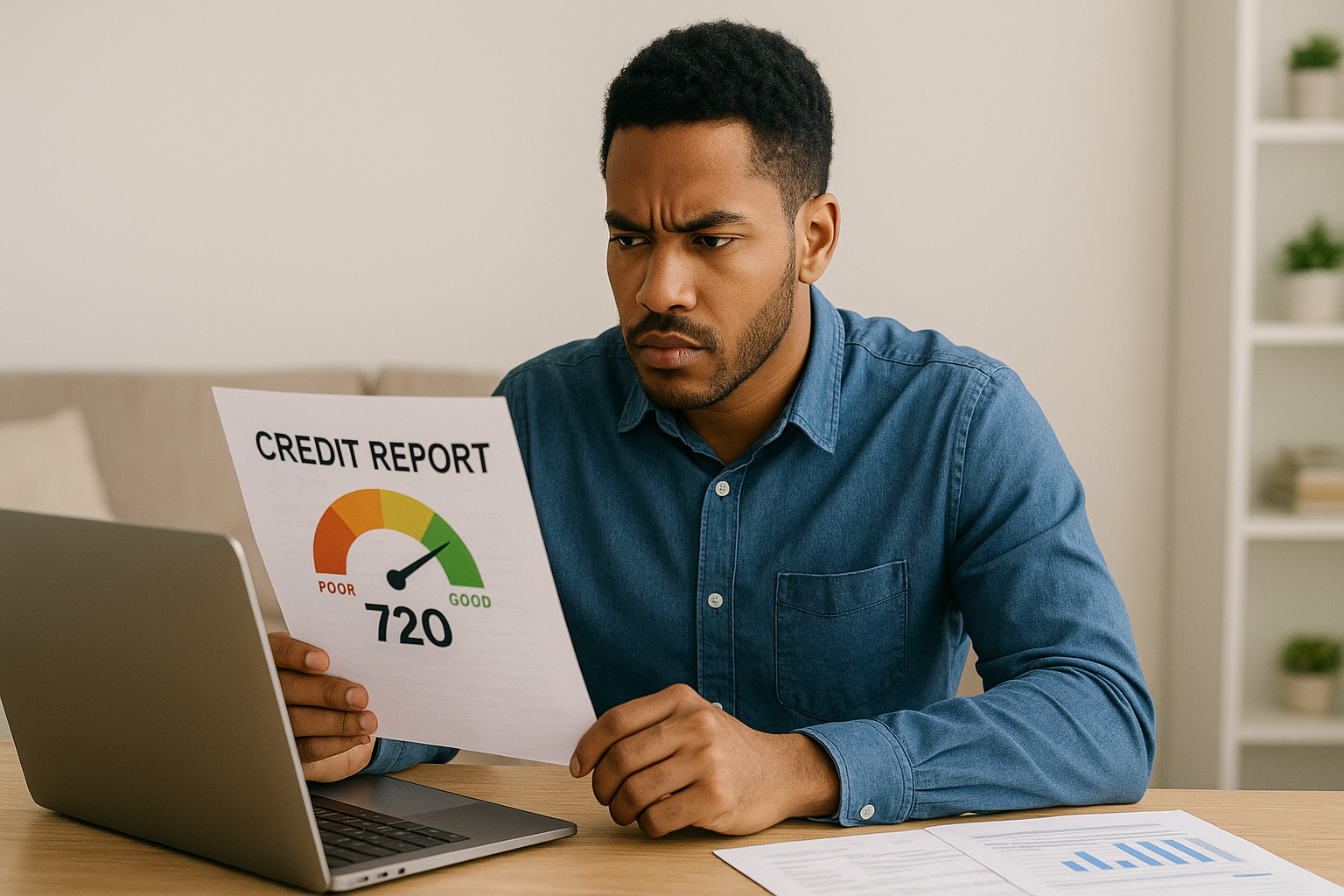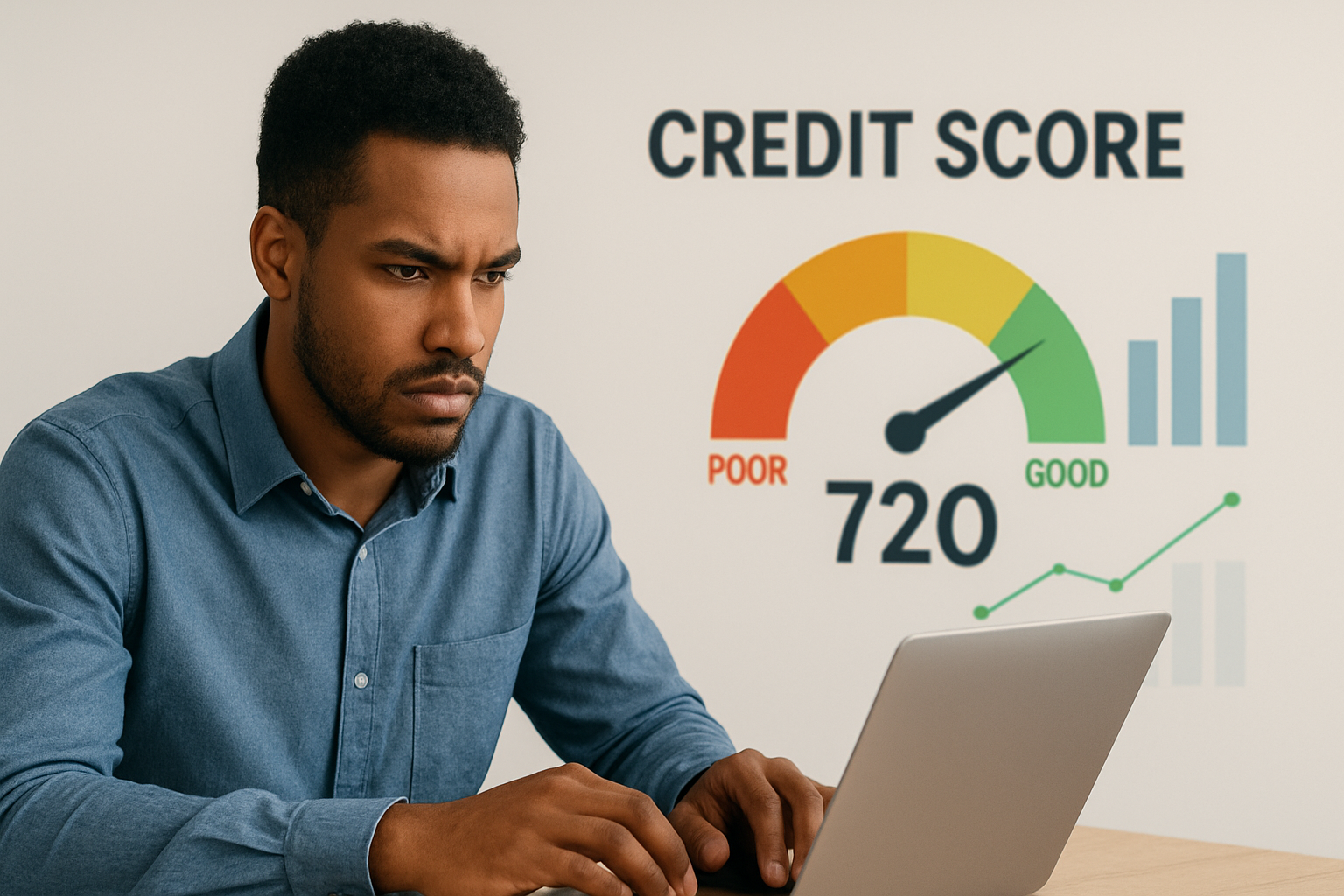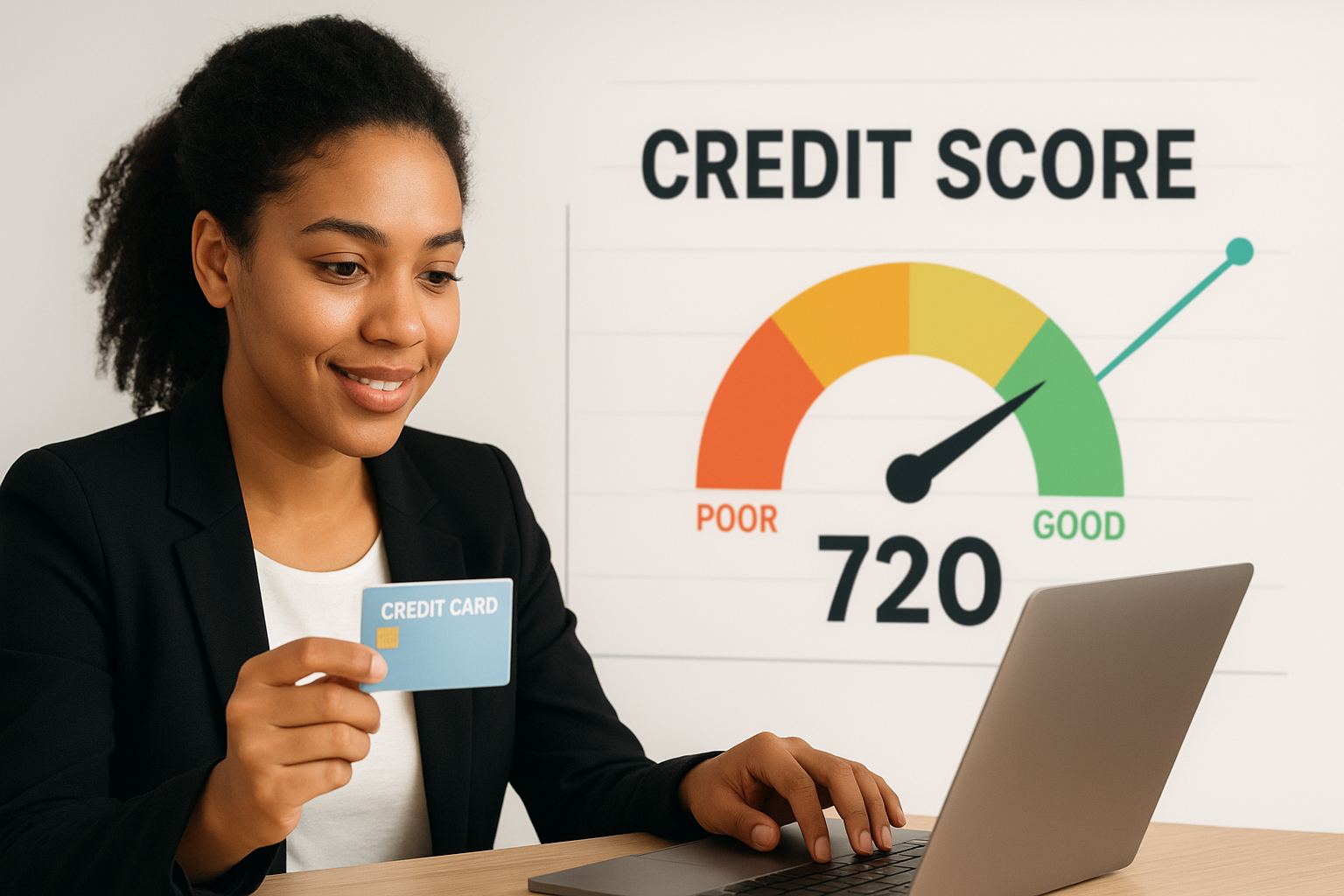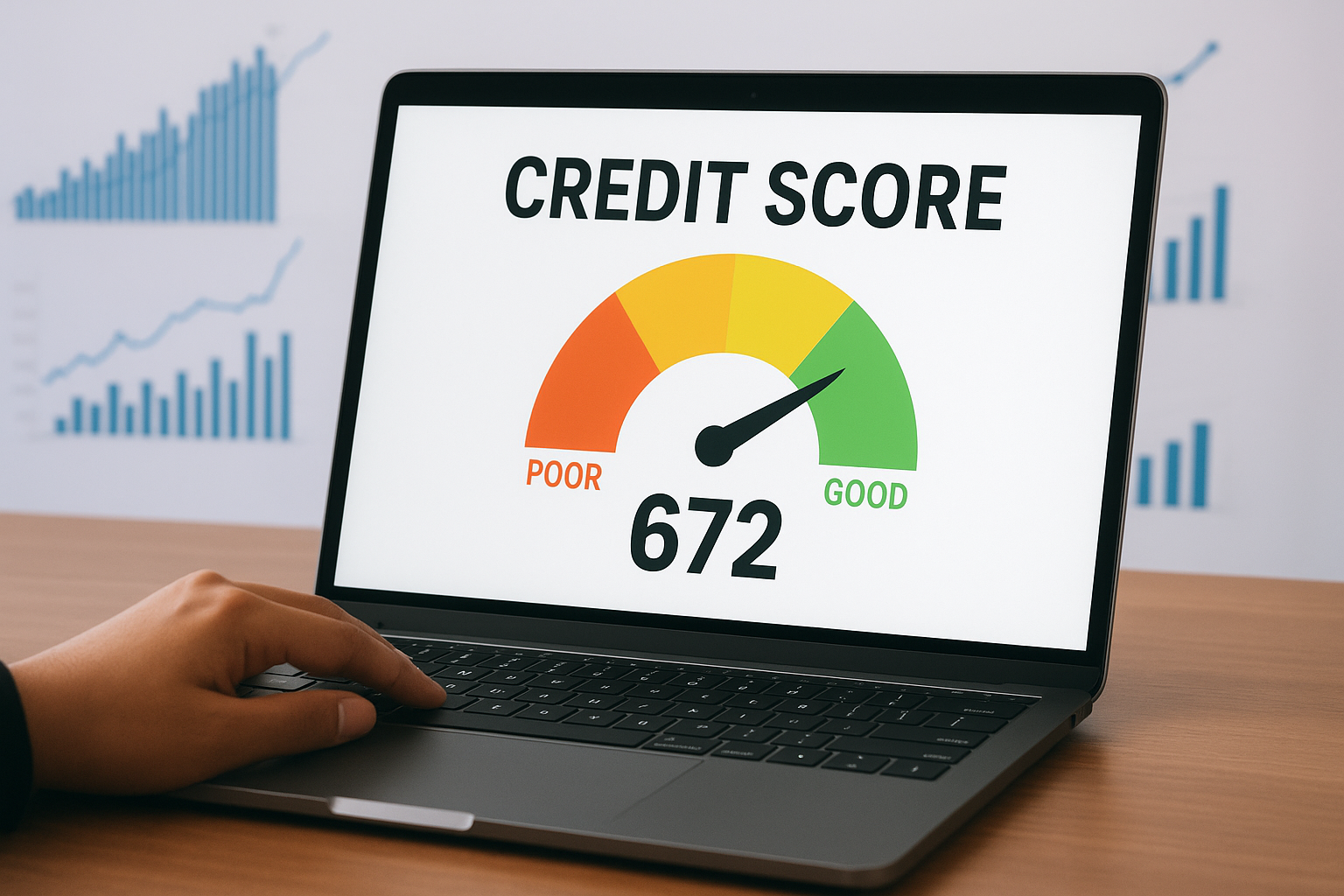If you’re new to credit, you’re probably asking: What are the best ways to build credit from scratch? Building credit can seem overwhelming when you don’t have a credit history—but the truth is, you can start building strong credit today with the right strategy.
In this detailed guide, we’ll walk you through 9 smart, safe, and effective ways to build credit from zero. Whether you’re a student, young professional, recent immigrant, or just someone who’s never used credit before, this guide will help you get started on the right foot.
1. Open a Secured Credit Card
A secured credit card is one of the best tools for beginners. Unlike regular cards, secured cards require a refundable deposit—typically $200–$500—which becomes your credit limit.
Why it Works:
-
You’ll be using real credit (not debit), so activity is reported to the three major credit bureaus.
-
It’s low-risk for lenders, which makes approval easier.
-
As long as you pay on time, you start building a solid credit profile.
Tip: Look for secured cards with no annual fee and automatic graduation to an unsecured card, such as:
2. Become an Authorized User on a Responsible Person’s Account
Another fast-track option to building credit is to be added as an authorized user on someone else’s credit card—usually a parent, spouse, or trusted friend.
How it Helps:
-
Their positive payment history and credit age may appear on your credit report.
-
You don’t even need to use the card.
⚠️ Warning: Choose someone with good credit habits—late payments or high balances can hurt your score.
3. Apply for a Credit Builder Loan
Credit builder loans are specially designed to help people build credit from scratch. These small loans are held in a savings account while you make payments, and once you finish, the money is released to you.
Benefits:
-
Monthly payments are reported to credit bureaus.
-
Builds payment history and proves creditworthiness.
-
Helps establish a savings habit.
Check your local credit unions or services like Self and SeedFi.
4. Use a Co-Signed Credit Card or Loan
If you can’t qualify on your own, a co-signer can help you get approved. A co-signer is someone with established credit who agrees to be responsible if you don’t pay.
Pros:
-
Easier approval with better terms.
-
Can be used to qualify for student loans, auto loans, or even credit cards.
Just be sure to honor your payments—defaulting can harm your co-signer’s credit too.
5. Report Rent and Utility Payments
You’re probably already paying rent, electricity, or mobile bills. While these don’t automatically count toward your credit, you can get them reported using third-party services.
Services that Help:
This method helps build your payment history, which makes up 35% of your FICO® score.
6. Keep Credit Utilization Low
Once you have a credit card, it’s important to understand the credit utilization ratio—this is the amount you owe versus your total limit.
Rule of Thumb:
-
Always keep your balance under 30% of your limit (preferably below 10%).
Example: If your limit is $300, don’t let your balance exceed $90.
Staying under this limit shows lenders you’re responsible and not reliant on credit to get by.
7. Always Pay On Time—No Exceptions
On-time payments are the #1 factor in your credit score. A single late payment can knock your score down significantly and stay on your report for up to seven years.
Tips:
-
Set reminders on your phone.
-
Use autopay for minimum payments.
-
Check statements monthly for accuracy.
Even if you only have one account, consistency builds trust with lenders.
8. Open a Starter or Student Credit Card
If you’re a student or recent graduate, many banks offer starter credit cards with easier approval and lower limits. These are unsecured cards made for people with little or no credit.
Look for:
-
No annual fee
-
Low interest rate
-
Credit education tools
Cards like the Chase Freedom® Student Credit Card or Bank of America® Cash Rewards for Students are good options.
Don’t forget to pay in full each month to avoid high interest and debt traps.
9. Monitor Your Credit Progress Regularly
You can’t manage what you don’t measure. Keep an eye on your credit score and activity using free tools like:
What to Monitor:
-
Score trends
-
New inquiries
-
Credit utilization
-
Payment history
This helps you spot errors early and stay motivated by tracking your progress.
How Long Does It Take to Build Credit from Scratch?
With consistent effort, you can establish a fair to good credit score (650–700) within 6 to 12 months. Excellent credit may take longer, but your score will steadily improve with responsible use.
Bonus Tips to Maintain Strong Credit
✔ Don’t Close Old Accounts
Age of credit history matters. Keep older accounts open, even if you don’t use them often.
✔ Diversify Your Credit Types
Eventually, mix it up with different types of credit—like a credit card and an installment loan (auto, student, personal).
✔ Avoid Applying for Too Much Credit
Each application triggers a hard inquiry that can temporarily reduce your score. Space out applications and apply only when needed.
Final Thoughts: Start Strong and Stay Consistent
Building credit from scratch isn’t about tricks—it’s about consistency, responsibility, and the right tools. These best ways to build credit from scratch will give you a solid foundation for everything from car loans to home mortgages in the future.
The sooner you start, the faster you’ll reap the benefits of a good credit score—lower interest rates, better loan approvals, and more financial freedom.
